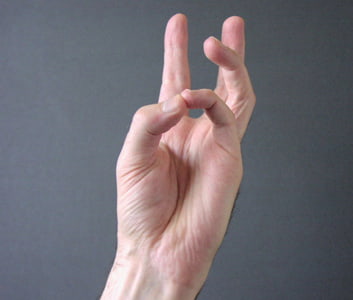Processing feelings about relating
In order to work through feelings where you relate to someone or something, it helps to check out a few things.
Relating
We very often are in some kind of situation where we relate. There may be one or more people we talk with, or relate to in some other way. But also when there are things in front of us that we do something with, we actually relate to these. That can be a phone or computer, but also things we build or clean.
This is about that there is you, and the other or that other thing, in your feelings.
Since this is so common, a lot of that is there in our unconscious. When we work through our feelings, a lot of it may come up.
Difficulties
There are a few difficulties when working through feelings about relating. For one, it is easy to overlook some things, and that makes the working through process not work out. It is therefore important to have a good understanding about what kind of feelings and thoughts are there, that we need to acknowledge.
The Other
The most easy to overlook is, in fact, the other.
Let's say you feel angry, and you want to work through that. So you feel the anger, take note of why you're angry, and how aggressive you feel. But, the feelings don't dissolve. What happened, is that you didn't take into account the person that you're angry at, who you were relating to.
So, how do you do that?
You may know how you see the other in your thoughts, and be able to describe that. Another way to access those feelings and thoughts about the other, is to physically look towards where the other would be. By looking, you get to feel and know how you see the other.
Your Self-Image
Besides how you see the other, there's also how you see yourself.
In the article about the Inner Child, this spot in the center of your belly is mentioned. When you focus there, it is not only easier to feel your Inner Child. You also get access to how you see yourself, to your self-image. Feeling and knowing your self-image is always included when you feel from this center. That makes this one of the most effective ways to work through feelings about relating.
In fact, the reason that you can feel more like a child, when you feel from this center, is that being a child is part of your self-image, then.
The Other's image of you
Next to your image of the other and of yourself, there is the image that the other has of you, that plays a role in relating. Of course, you cannot be certain what the other really thinks of you in the moment, but you get an impression of that through the way they treat you. You can notice how important you seem to them, for example, or how much they like you or dislike you.
In the relating, you react to how you believe the other sees you. You may feel appreciated or proud, when you believe the other appreciates you. And for example inferior, when you believe that the other feels superior.
 You can tune in to your feeling reactions to that, by feeling the outside
of your body, or the perifery, so you will. Where your body meets the outside world.
So, where your skin is, but it's not actually your skin that you need to feel.
You can tune in to your feeling reactions to that, by feeling the outside
of your body, or the perifery, so you will. Where your body meets the outside world.
So, where your skin is, but it's not actually your skin that you need to feel.
For some, it may help tuning in to this by using a particular way to hold the fingers of your hands (a "mudra"). You let the tips of your pinky fingers and thumbs touch. Leave the rest of your fingers open. Immediately after you do that, you may feel your attention going to the perifery of your body. There you may feel your feeling reaction to how you believe the other sees you.
Enthusiasm and Passion
The energy level with which we engage in any kind of relation shows as our enthusiasm or passion for it. The more there is of that, the more lively we are.
The less energy we have for a relation, the less enthusiasm, consequently. We get bored or even apathetic. We may even get to a point where there is hardly a relation anymore, because we are not actually interested. This could happen when we do something only because we are required to do that. For example at school, when being required to look at what the teacher writes on the board, but just staring blankly.
This has an effect on our body, actually. When we are enthusiastic or passionate, our body is moist. It's juicy. When we are bored or apathetic, our body gets dry.
The exercise
So, the exercise is to feel relations. It is especially useful to do this for the Inner Child. But you can do this with whatever is there at the moment.
Object Relations
In psychology, these ways that we relate to others in our psyche are called "Object Relations." So, a lot of our memories of how to relate are object relations. It is sometimes thought that only those memories are object relations, but that is not so. The function in our psyche that handles our relations to the outside world is always handling object relations, whether on the automatic or totally fresh.